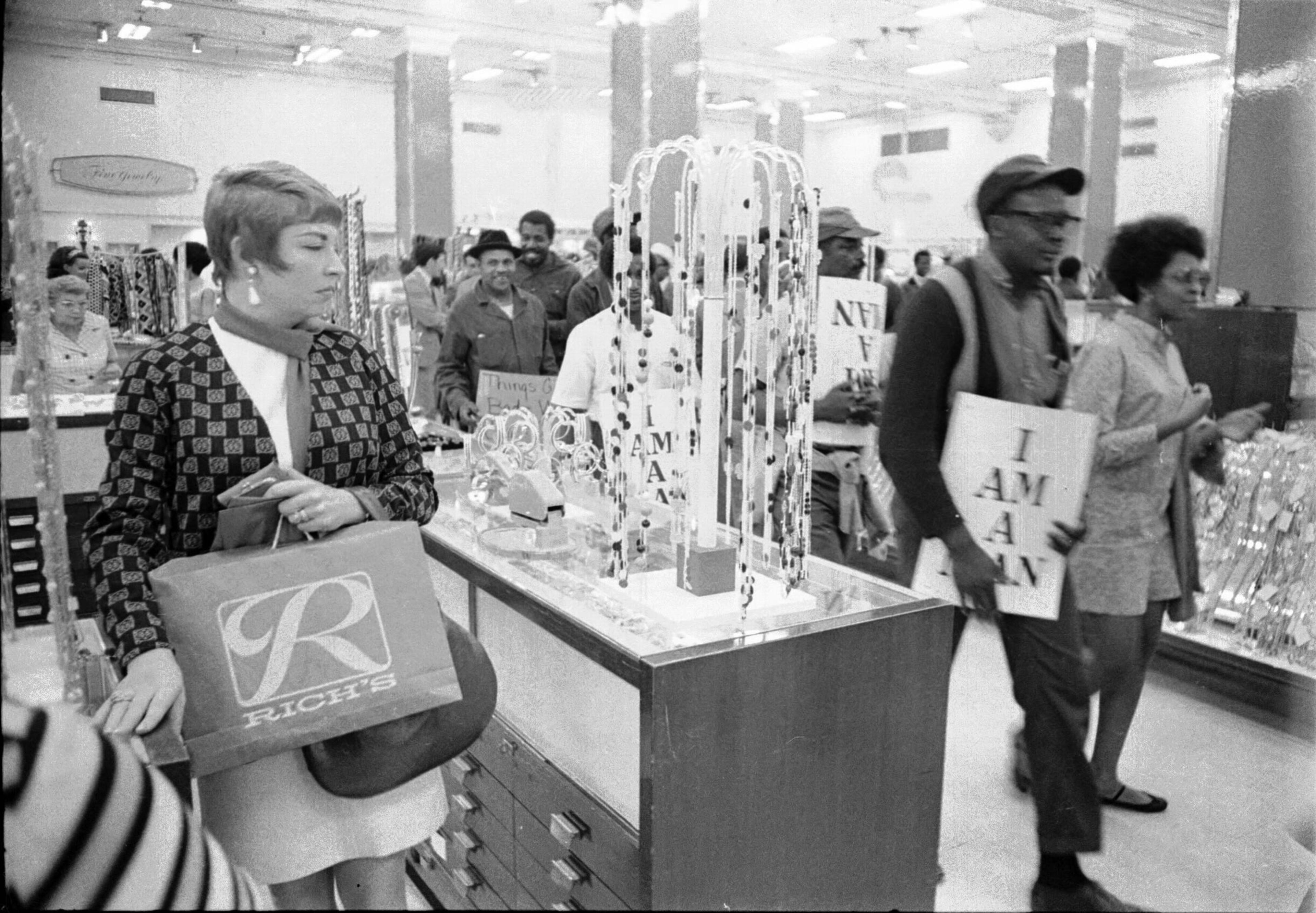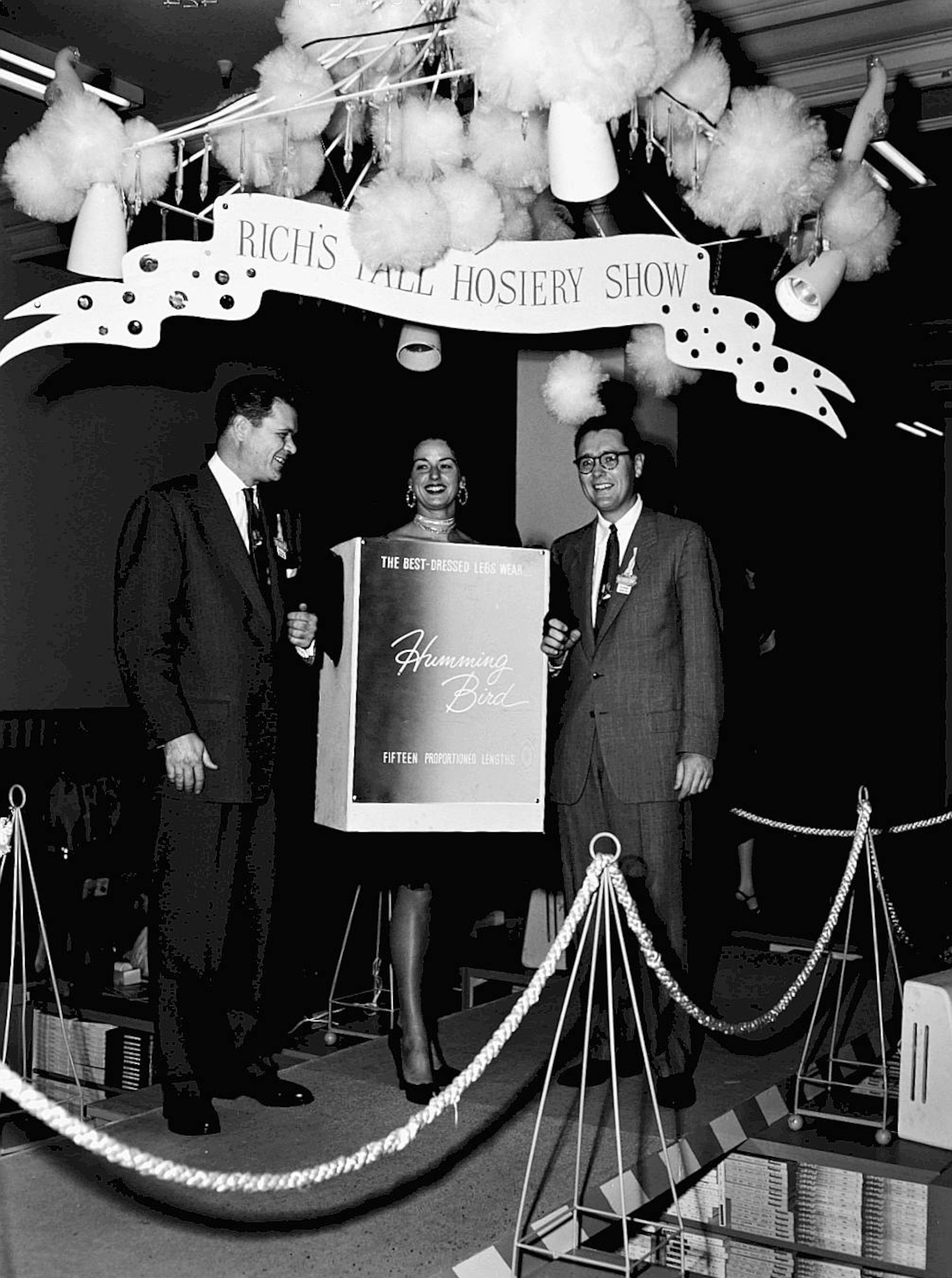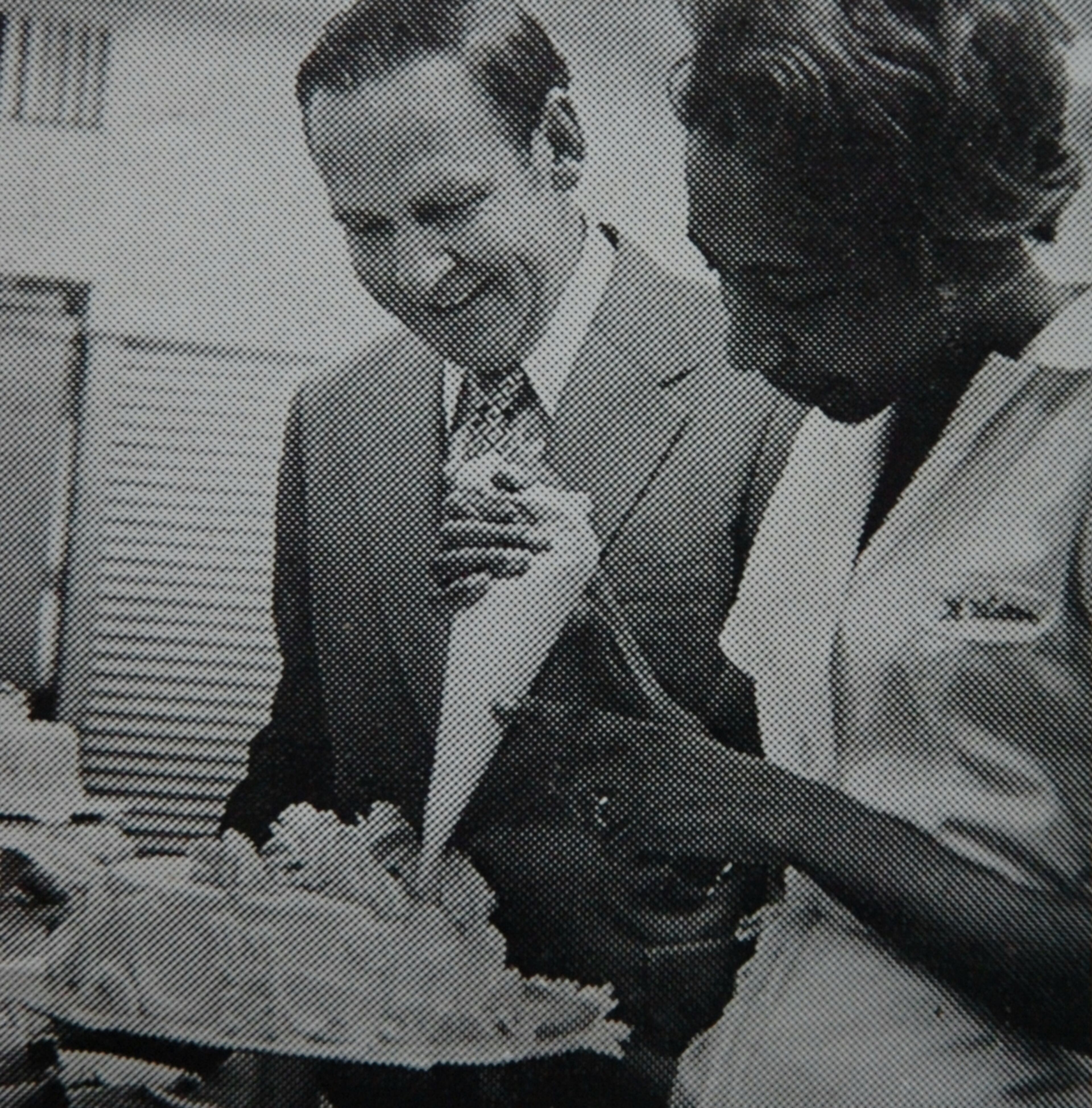Why Rich’s became an Atlanta institution
























The following is excerpted from the first chapter of Celestine Sibley’s book on Rich’s, “Dear Store,” which was published by Doubleday & Co. in 1967. It was republished in The Atlanta Journal-Constitution on Jan. 21, 1990
A man in McDonough told the story and he vowed it happened to a woman from some other small town near Atlanta.
It seems that early in her marriage she bought dining room furniture from Rich’s. As the time passed she felt a vague dissatisfaction with the furniture and one day, 16 years later, she was back in the store shopping with her daughter, who was about to be married, and she saw exactly what she wanted.
She rubbed a hand along the chair back, according to the story, and said wistfully, “This is really what I should have bought. But that clerk over-persuaded me and all these years I’ve lived with dining room furniture that I really didn’t like.”
The next day, home in Conyers, Jonesboro, or wherever she lived, the lady answered the doorbell to find a Rich’s van in the drive - there to deliver the furniture she liked and to pick up, with the store’s apologies, that over-zealous clerk’s mistake.
A true story?
There’s no record of it at Rich’s. In fact, you’ll find Rich’s executives who doubt that it happened. But they can’t say for sure; and four out of every five Georgians would accept it without question, and go you one better with a story they’ve heard about Rich’s.
The point is that Rich’s is the kind of store such stories are told about.
It is a store of legend.
As there is a measure of truth in all legend, so there is perhaps foundation for the widely held premise that beneficent nature set Rich’s down on a patch of scorched red clay back in the Bad Times of Reconstruction Days for the express purpose of giving aid and comfort, hope and cheer to a hard beset populace.
It’s not exactly true, as Georgians allege, that you can buy anything at Rich’s. A mountaineer who wrote in several years ago, enclosing a two-dollar money order and asking the store to dispatch him by Tallulah Falls railroad a good wife - “stout, no snuff dipper” - was disappointed.
Neither can you exchange anything without regard to whether you got it at Rich’s. A 7-year-old Atlanta boy failed to swap his new baby sister for a space helmet. The toy buyer, however, touched by his faith in Rich’s, sent him the space helmet with the store’s compliments and a note strongly recommending baby sisters as practically irreplaceable playthings.
Aside from these two exceptions, it’s hard to find any family necessity that Rich’s won’t sell you, very nearly on your own terms, or take back and exchange at your slightest whim - even if, as sometimes happens, you bought it from a competitor.
Some of the old-timers in the hosiery department still remember with a touch of bitterness the World War II years when they took back hundreds of defective nylons of a brand they didn’t even stock. The bakeshop recalls the mother of a bride who came back to complain that the wedding cake Rich’s sent out had yellow layers, instead of white, and although every last crumb of it was eaten, she felt subtly wronged. The bakeshop promptly gave her a cake with white layers.

Part of what Southerners feel towards Rich’s is, of course, civic pride in a luminous local success. But most of it is warmer and more personal. In a hundred years Georgians and Rich’s have gone through good times and bad together and the big store has proven itself a staunch and dependable neighbor.
During the 1920s the price of cotton fell disastrously for a state geared to the cotton economy. Rich’s advertised it would buy 5,000 bales from Georgia farmers at a price well above the market. Hundreds took advantage of the offer.
In the bleak Depression days of the 1930s, Walter Rich picked up his newspaper one morning and read that the city of Atlanta was too broke to pay its schoolteachers. He telephoned the mayor and suggested that the teachers be paid in scrip, which Rich’s would cash at full value with no obligation that any of it be spent in the store. It was a gesture of faith in Atlanta’s future at a time when the city badly needed it.
In 1945, war-weary troops arrived at Fort McPherson one Saturday afternoon before Labor Day, ready to be discharged on Sunday morning. It was a time of rejoicing for the men and their families, except for one little detail. The Army’s vault was time-locked for the weekend and they couldn’t get their pay until Tuesday. Rich’s promptly opened up its safe and advanced the money for the payroll.
The Winecoff Hotel fire, in which 119 persons died in 1946, was a local tragedy which was felt throughout the nation. As soon as they heard of it, Rich’s employees and executives went out to help the survivors of the fire and the scores of relatives who started pouring in from all parts of the country to identify and claim the bodies of the dead.
Dwight Horton, director of employee activities, and Roswell Smith, chief of the store protection department, spent days with bewildered and bereaved visitors, stood by during the heartbreaking procedure in Old Grady Memorial Hospital’s morgue, and took to them from the store burial clothes for many of the victims. Mrs. Lutie Cheek, who headed the Penelope Penn personal shopping service for many years before her retirement, took members of her staff and offered help and, in some instances, clothes to women victims who wandered about the scene of the fire in their nightclothes.
There was little the folks at home could do on June 3, 1962, when 130 outstanding Atlanta and Georgia citizens, who had gone to Europe on an Atlanta Art Association-sponsored trip, were killed as their charter plane took off for home at Paris’s Orly Airport. Rich’s, sorrowing with grief-stricken Georgians, pulled its scheduled Monday morning ad and offered instead the simple comforting of the 23rd Psalm. And Richard H. Rich, grandson of Rich’s founder and chairman of its board of directors, spearheaded a drive to build a new arts center as a memorial to those who died.
Georgians don’t forget these things.

